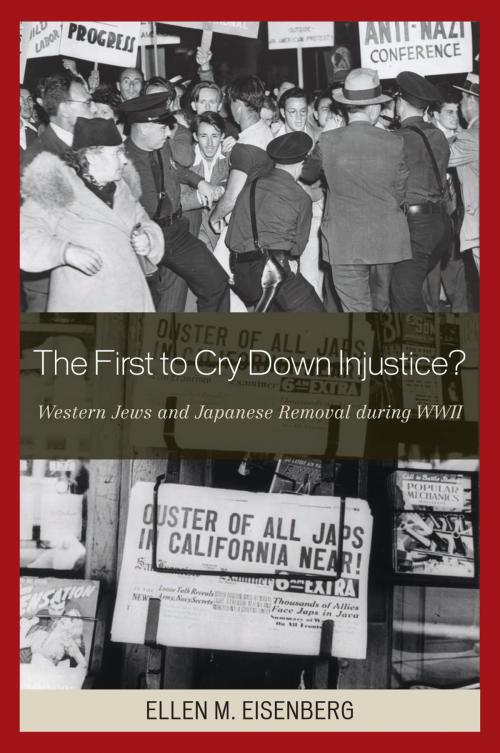The First to Cry Down Injustice?
Western Jews and Japanese Removal During WWII
Nonfiction, History, Asian, Japan, Jewish, Military, World War II| Author: | Eisenberg | ISBN: | 9780739130131 |
| Publisher: | Lexington Books | Publication: | January 1, 1955 |
| Imprint: | Lexington Books | Language: | English |
| Author: | Eisenberg |
| ISBN: | 9780739130131 |
| Publisher: | Lexington Books |
| Publication: | January 1, 1955 |
| Imprint: | Lexington Books |
| Language: | English |
The First to Cry Down Injustice explores the range of responses from Jews in the Pacific West to the removal and incarceration of Japanese Americans during WWII. While it is often assumed that American Jews_because of a commitment to fighting prejudice_would have taken a position against this discriminatory policy, the treatment of Japanese Americans was largely ignored by national Jewish groups and liberal groups. For those on the West Coast, however, proximity to the evacuation made it difficult to ignore. Conflicting impulses on the issue_the desire to speak out against discrimination on the one hand, but to support a critical wartime policy on the other_led most western Jewish organizations and community newspapers to remain tensely silent. Some Jewish leaders did speak out against the policy because of personal relationships with Japanese Americans and political convictions. Yet a leading California Jewish organization made a significant contribution to propaganda in favor of mass removal. Eisenberg places these varied responses into the larger context of the western ethnic landscape and argues that they were linked to, and help to illuminate, the identity of western Jews both as westerners and as Jews.
The First to Cry Down Injustice explores the range of responses from Jews in the Pacific West to the removal and incarceration of Japanese Americans during WWII. While it is often assumed that American Jews_because of a commitment to fighting prejudice_would have taken a position against this discriminatory policy, the treatment of Japanese Americans was largely ignored by national Jewish groups and liberal groups. For those on the West Coast, however, proximity to the evacuation made it difficult to ignore. Conflicting impulses on the issue_the desire to speak out against discrimination on the one hand, but to support a critical wartime policy on the other_led most western Jewish organizations and community newspapers to remain tensely silent. Some Jewish leaders did speak out against the policy because of personal relationships with Japanese Americans and political convictions. Yet a leading California Jewish organization made a significant contribution to propaganda in favor of mass removal. Eisenberg places these varied responses into the larger context of the western ethnic landscape and argues that they were linked to, and help to illuminate, the identity of western Jews both as westerners and as Jews.















